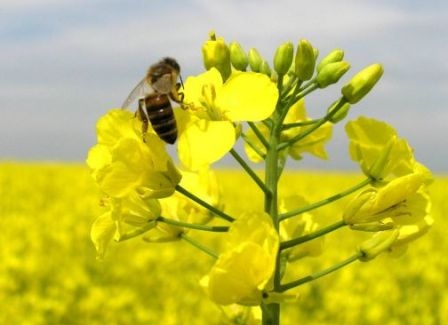Germany's intention to phase out biodiesel puts pressure on rapeseed prices

Traders in the EU are actively selling rapeseed (canola) futures on news of Germany's intention to abandon biofuels produced from agricultural crops.
Germany, a major producer and exporter of biofuels, has banned the use of palm oil in biofuel production since 2023, and now intends to phase out plant-based biofuels by 2030. Such a proposal appeared against the background of high costs and supply instability due to the Russian Federation's war against Ukraine. It is also explained as an attempt to meet the target indicators of greenhouse gas emissions set by the country's government, but it seems illogical.
In general, biofuels were introduced to reduce the use of fossil fuels in order to slow down climate change. The desire to reduce the use of agricultural crops in the production of biofuels is related to the areas of land, cultivated crops and water required to produce a sufficient amount of dry matter.
Germany does not propose a phase-out of biofuels per se, but the use of alternative raw materials, including used cooking oil, waste and animal fats. But this proposal has not yet been submitted to the country's parliament, so even if it is approved, it will take some time to implement.
- In news from Germany, February rapeseed futures on the Paris exchange fell 5.6% since the start of the week to €536.75/t or $581/t (-3.7% for the month, -9% for the year) .
Since early January, canola prices have been falling under pressure from lower vegetable oil prices and increased supplies from Australia, which will harvest a record canola crop this year.
The market is also under pressure from the record rapeseed harvest in the Russian Federation, which exceeded the 2021 figure by 55% and reached 4.6 million tons. This allowed the Russian Federation to export a historically maximum 969,000 tons of rapeseed oil in 2022, 69% of which was purchased by China, 10% - Latvia, 7% - Lithuania.
- March canola futures on the Winnipeg exchange fell 1.6% for the week to CAD 827/t or $614/t (-4.6% for two weeks), in line with last year's level. They are supported by demand for rapeseed oil from biodiesel producers in the US.
In Ukraine, demand prices for rape are also falling, and during January at DAP - Poland, the Czech Republic and Germany, they fell by 60-80 €/t to 490-530 €/t.
An increase in the amount of precipitation in Argentina reduces speculative demand for soybeans, and increasing supplies of oilseeds to the world market will not allow rapeseed prices to rise in the near future.


